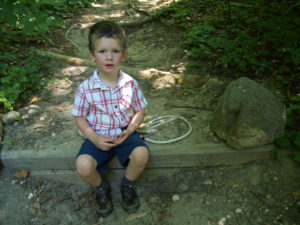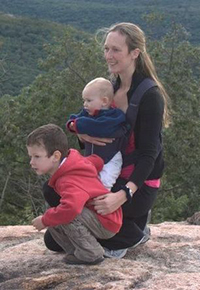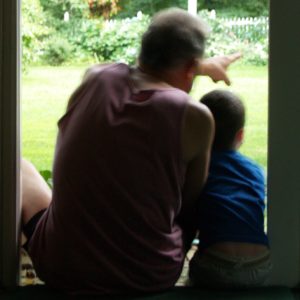Making Kindergarten Awesome
Preparing Kids for Kindergarten

This is an all-time favorite topic for me because I love happy kids in kindergarten. They come thriving on socializing, and running around; some even read, and others don’t know what a letter sound makes. That’s what makes them so interesting!! But definitely, everyone has to figure out how to separate from Mommy or Daddy. Even if they mastered preschool, this is a new transition. (And some didn’t go to preschool, btw. It’s a new generation. These kids do lots of stuff from dance class to Gymboree, to Karate, and climbing ropes. So preschool isn’t for every kid under the age of five.)

So let’s get down to basics: Preparation which includes feelings of trusting new grown-ups, meeting new kids, and learning kids this age often find out that they can conform to routines because they provide safety and certainty.
So let’s prepare our cherubs.
- definitely visit the new school,
- go into the classroom,
- play on the playground,
- and meet the teacher.
- Have your five-year-old know it’s just plain fine to bring her security stuffie in her new backpack and even keep it on her desk. (Make sure the kindergarten teacher gets this essential. Early childhood specialists generally do. But not all.)

Help your child learn the teacher’s name. Even spell it if they are up to that. If not, sing it, say it, and dance to it. Let this new name become familiar. Familiarity breeds security. The first day depends exactly on that security so the teacher’s face shouldn’t be brand new that day.
Find out or decide (You Are the Parent) how kids go to kindergarten in your geographic area. Do they walk on Daddy’s shoulders, take the subway with YOU, or drive with YOU?
Whatever it is, do it a few times ahead of the first day—Why? To make it FAMILIAR. That’s the key word: FAMILIAR. Familiar is a fascinating word btw. Fam like family. And Liar!!! What’s that about? No lies. Total trust. Really say what’s really going to happen if you want your child prepared.

Even though they can’t read a clock and don’t have a cell phone (please, not yet) let them know somehow how long they will be away from you and when you’ll see them next—I mean exactly when and where. TRUST. Clear information. It works.
If they’ve not been to preschool for part of a day or a whole day, this is definitely a new experience. This isn’t spending a day with Grandma. It’s a day with a teacher who sits kids in a circle, may set them up at desks or little tables, gives them cubbies, and expects them to listen. There are even rules, like lining up.
And another new thing—Conformity. Our little cherubs are not quite used to doing what everyone in a group does at the same time. Especially if they haven’t been to preschool or storytime at the library, they haven’t lived with a group of kids the same age. But that’s okay. That’s what kindergarten is about.
So, you’ve visited. You’ve played on the playground. You may be lucky enough to meet at least one new kid that will be in your kid’s class and invite them for a play date. But is that enough? Yes for some. But not for all.

Every day the few days before day one, let your child know that in a few days, it will be time to go to school. School is fun. School is for play and learning. In fact, learning is fun. Hopefully in your home, learning has been fun since day ONE. If not, it’s never too late to get this point across. So let your sweetie know what she’ll learn. Maybe coloring, maybe snacking, maybe napping on a little rug, maybe chatting with new kids, and hopefully playing on the playground that may be called “recess” (or maybe, not.)

So this is a wonderful part of parenting. But it’s tough for parents, not only kids. You really wish you were in the classroom with your eagle eyes. Or maybe not. Maybe you can finally go have coffee or tea with other mothers and dads. Whichever—–YOU, TOO— need to feel prepared. Yep. Parents need to be prepared for kindergarten.
Even if you work outside the home, please, please be home when your child gets home the first few days.
Lock in that trust that you haven’t disappeared. Offer a scrumptious snack, chat, and play. And that’s it.

Trying to hear each other takes patience and practice
Oh, tears? Maybe. That’s okay, too. Listen, listen, listen.
Tears are only bits of water that need to find words.
Don’t be surprised if whatever your five-year-old was bothered or upset about makes perfect sense. Don’t dismiss what they say. LISTEN. Maybe the teacher really didn’t give them enough attention to feel secure. I know the teacher will say she can’t know every child’s needs the first day—but you can clue him or her in if you expect your child will need a pat on the shoulder and a kind word.
Maybe no one did talk to them or give them a hug. Maybe the group is bi or tri or whatever-lingual and so no one understood what your cherub was saying. (Hopefully, you already know the cultural mix so you can prepare your child happily for this diversity.)
Maybe they got up and wandered from the story circle. It’s really not a crime unless the teacher made it one. So just tell them in school there are new RULES. When everyone sits in a circle, everyone stays in the circle and raises their hand if they have to pee.

“I have a distinctive child.”
Yeah. Pee. This is a good one to figure out when you go to that early visit to the classroom.
Ask the teacher where the bathroom is and when they go and what the rules are. Do they ask first? Do they say, “Ms…..I have to pee.” Do they just go to the loo that’s even in the classroom? Find out. This IS important.
But if your cherub (BTW) comes home with wet undies, don’t say much except, let’s get you changed. It happens. It will happen. It’s not wrong or bad or anything except being anxious and we all know (because we’re parents) what anxiety is about.

So that’s just about DAY ONE. DAY ONE for some kids is all week and the next week, too. If they don’t feel settled in by week three, it’s time for a teacher conference. Call up and make an appointment. You’re your child’s advocate. So, advocate.
Let’s make kindergarten fun and sweet and nurturing. Let’s make learning fun and exciting.
More questions? Read please first chapters of: Unlocking Parental Intelligence: Finding Meaning in Your Child’s Behavior. Whatever new or old behaviors crop up that first week and the first month, those behaviors have meaning.
Behaviors send messages.
It’s our job to understand them. (Please, please, please, no yelling, no punishing, just talking, hugging, or respecting when kids don’t particularly like hugs and touches and do more visits to the school with Mommy or Daddy on the weekends and play in the playground until they feel it’s just like home.)

Home is where Parents and Children Talk
Trust yourself. YOU WILL MAKE THIS WORK FOR YOUR FIVE-YEAR-OLD.